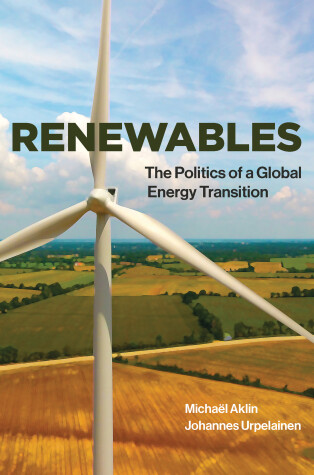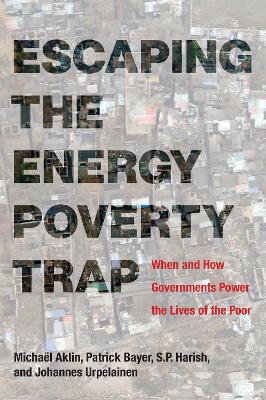The MIT Press
2 total works
A comprehensive political analysis of the rapid growth in renewable wind and solar power, mapping an energy transition through theory, case studies, and policy.
Wind and solar are the most dynamic components of the global power sector. How did this happen? After the 1973 oil crisis, the limitations of an energy system based on fossil fuels created an urgent need to experiment with alternatives, and some pioneering governments reaped political gains by investing heavily in alternative energy such as wind or solar power. Public policy enabled growth over time, and economies of scale brought down costs dramatically. In this book, Michael Aklin and Johannes Urpelainen offer a comprehensive political analysis of the rapid growth in renewable wind and solar power, mapping an energy transition through theory, case studies, and policy analysis.
Aklin and Urpelainen argue that, because the fossil fuel energy system and political support for it are so entrenched, only an external shock-an abrupt rise in oil prices, or a nuclear power accident, for example-allows renewable energy to grow. They analyze the key factors that enable renewable energy to withstand political backlash, andt they draw on this analyisis to explain and predict the development of renewable energy in different countries over time. They examine the pioneering efforts in the United States, Germany, and Denmark after the 1973 oil crisis and other shocks; explain why the United States surrendered its leadership role in renewable energy; and trace the recent rapid growth of modern renewables in electricity generation, describing, among other things, the return of wind and solar to the United States. Finally, they apply the lessons of their analysis to contemporary energy policy issues.
Escaping the Energy Poverty Trap
by Michael Aklin, Patrick Bayer, S.P. Harish, and Johannes Urpelainen
The first comprehensive political science account of energy poverty, arguing that governments can improve energy access for their citizens through appropriate policy design.
In today's industrialized world, almost everything we do consumes energy. While industrialized countries enjoy all the amenities of modern energy, more than a billion people in the developing world still lack energy access. Why is energy poverty persistent in some countries and not in others? Offering the first comprehensive political science account of energy poverty, Escaping the Energy Poverty Trap explores why governments have or have not been able to lead in providing modern energy to their least advantaged citizens.
Focusing on access to modern cooking fuels and household electrification, the authorsdevelop a new political-economic theory that introduces government interest, institutional capacity, and local accountability as key determinants of energy access. They draw on case studies from India, East Asia, Africa, and Latin America to offer the optimistic conclusion that governments can improve institutional capacity and local accountability through appropriate policy design. Energy poverty is a policy problem, the authors assert, and engaging with it as such offers new opportunities not only for ensuring equal energy access, but also for political, economic, and environmental development.

